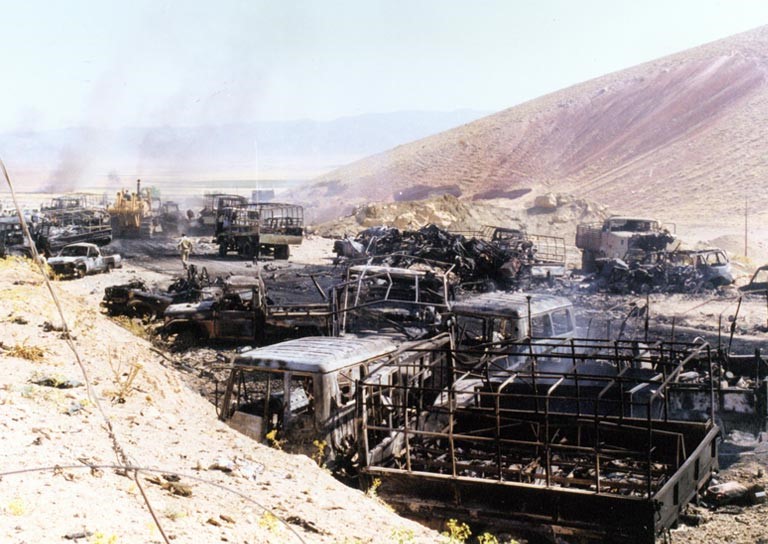Poet, novelist, and T&W teaching artist Bushra Rehman takes a poetry lesson above and beyond a simple introduction to literary devices in this lesson plan based on Dunya Mikhail’s “The War Works Hard.” The class analyzes both the mechanics of the poem and how the author uses them to strengthen her messages, giving students a prime example of a personification poem before they begin writing their own. Rehman’s lesson uses beautiful literature not only to inspire more literature, but also to offer her students a marginalized perspective and get them thinking critically and deeply about their surroundings.
Lesson Overview
Grade(s) taught: 11th–12th
Genre(s) taught: Poetry, political writing
Download: Personification and War Poetry
Common Core State Standards: (Refer to the ELA Standards > Reading Literature > Grades 11–12)
- ELA-LITERACY.RL.11-12.2
Determine two or more themes or central ideas of a text and analyze their development over the course of the text, including how they interact and build on one another to produce a complex account; provide an objective summary of the text. - ELA-LITERACY.RL.11-12.4
Determine the meaning of words and phrases as they are used in the text, including figurative and connotative meanings; analyze the impact of specific word choices on meaning and tone, including words with multiple meanings or language that is particularly fresh, engaging, or beautiful. - ELA-LITERACY.RL.11-12.6
Analyze a case in which grasping a point of view requires distinguishing what is directly stated in a text from what is really meant (e.g., satire, sarcasm, irony, or understatement).
Guiding Questions:
- How does Dunya Mikhail convince her audience that war is violent?
- How is personification used in this poem? How is her use of irony effective? How does Mikhail get her meaning across?
- Do you agree or disagree with her thoughts on war? What are your thoughts on war?
LESSON
Introduction: Discuss the historical background of Dunya Mikhail’s poem, “The War Works Hard.” Mikhail is an Iraqi exile who fled her country after being placed on Saddam Hussein’s enemies list. She wrote her first poems as a teenager in Baghdad, just as the Iran-Iraq War began in the early 1980s. Subsequent wars offered more to write about. Mikhail, who now lives in the United States, wrote her poetry collection The War Works Hard in response to the Persian Gulf War of 1991, when the United States invaded Iraq.
Have student volunteers read the poem out loud and answer questions they have about the text. Use the guiding questions to facilitate a conversation about the poem’s meaning. Point out the literary devices Mikhail uses: irony, humor, personification, repetition, detailed description
Main Activity: Students write their own poems in which they personify a concept.
Closing: Each student reads one line of the poem she wrote to create a group oral poem.
Materials:
Copies of “The War Works Hard”
Vocabulary:
Irony, personification, emigrate
Multi-Modal Approaches to Learning:
This lesson engages interpersonal learners during the group discussion and shared oral poem; intrapersonal learners as they self-reflect on what war means to them and write independently; linguistic learners in considering the different meanings of Mikhail’s words based on her voice as the author; aural learners, hearing the poem read aloud; and visual learners, as the poem itself is very visual and descriptive, inspiring readers to see what is being described- accordingly, the writing is encouraged to be very descriptive.
Rehman’s dark comedy, Corona, was chosen by the NY Public Library as one of its favorite books about NYC. She is co-editor of Colonize This! Young Women of Color on Today’s Feminism and author of the collection of poetry, Marianna’s Beauty Salon, described by Joseph O. Legaspi as “a love poem for Muslim girls, Queens, and immigrants making sense of their foreign home—and surviving.”
Her new novel, Roses, in the Mouth of a Lion, is a modern classic about what it means to be Muslim and queer in a Pakistani-American community.



